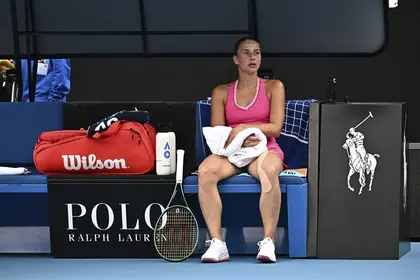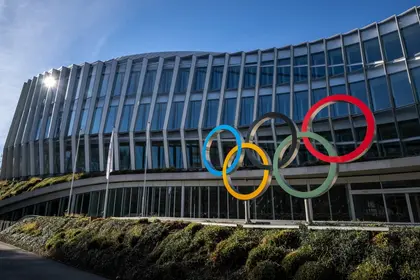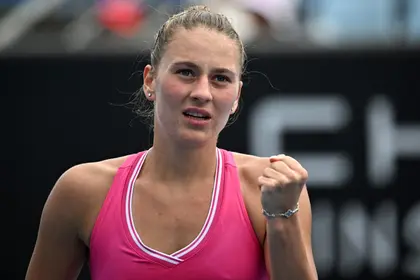In March, the International Olympic Committee (IOC) made a controversial decision regarding the readmission of Russians and Belarusians to Olympic events. Sports ministers from 35 countries wrote to the committee questioning the body's decision and asked it to review it in case of non-compliance with certain aspects.
The fourth statement on Russia’s War on Ukraine and international Sport was published on Thursday, May 4. The joint statement was signed by representatives of 35 countries: Australia, Austria, Albania, Belgium, Bulgaria, Great Britain, Greece, Denmark, Estonia, Iceland, Spain, Ireland, Italy, Canada, Cyprus, Latvia, Lithuania, Liechtenstein, Luxembourg, the Netherlands, Germany , New Zealand, Norway, Poland, Portugal, Republic of Korea, Slovakia, Slovenia, USA, Ukraine, Finland, France, Czech Republic, Croatia, Sweden and Japan.
JOIN US ON TELEGRAM
Follow our coverage of the war on the @Kyivpost_official.
From Ukraine, the statement was signed by the head of the Ukrainian National Olympic Committee (NOC) and the Minister of Sports, Vadym Gutzait.
It reads that ministers and senior representatives for sport from several countries share similar views and have taken note of the guidelines for the participation of individual neutral athletes and support staff, holding Russian or Belarusian passports in international sports events, as well as the related press release issued by the IOC on 28 March 2023.
"We maintain that the Russian state, which has broken the Olympic truce twice, must not be allowed to use sport to legitimise its barbaric and unprovoked invasion of Ukraine, nor should the Belarusian state be able to use sport to legitimise its complicity in Russia’s war of aggression," the signers of the statement stressed.

Ukraine's Kostyuk Says Players at Australian Open Can Remind of Horrors of War
The representatives of the 35 countries stated, that while some aspects of the strong concerns they raised in collective statement of 21 February 2023 have been addressed by the IOC, there are substantial issues remaining, not least around the military connections of athletes, state funding, the definition of what constitutes teams and on enforcement mechanisms.
The signatories of the statement underline once again that their position "is not one of discrimination against individuals on the basis of their passport."
"We are focused on fair sporting competition as well as on ensuring that Russian and Belarusian athletes are in no way appearing as representatives of their states, as the IOC is also seeking to ensure through its recommendations," the statement reads.
The Sports ministers from these 35 countries will closely observe implementation of the recommendations by the IOC and international sports federations over the coming weeks. If these issues are not addressed, they would expect the IOC to reconsider its approach.
A series of deaths on the Ukrainian front in the past week brings the total number of Ukrainian athletes killed, since the Russian invasion began in February 2022, to 287. This was revealed by the Deputy Minister of Youth and Sports, Andriy Chesnokov, on Tuesday.
Some of the athletes and their families were killed in Russian attacks on Ukrainian cities, including the youngest, 11-year-old rhythmic gymnast Kateryna Diachenko. Illia Shevliak, president of the Ukrainian Sports Committee, in an interview with EFE highlighted the very difficult situation that Ukrainian athletes are going through.
According to the "Sport Map" drawn up by the Committee, more than 400 stadiums, training grounds and other important sports facilities have been damaged or completely destroyed. Most of them were located in Donbas, in the east, as well as the cities of Chernigiv, Mykolaiv and Kharkov, which were heavily bombed by Russia.
Despite that, Ukraine has achieved good results on the international scene, according to Shevliak. However, the recent IOC recommendation allowing Russian and Belarusian athletes to compete internationally with "neutral" flags has dealt a severe blow to Ukrainian athletes.
"The IOC says that it cares about the rights of Russian and Belarusian athletes. But what about the rights of Ukrainians? How can they share the same space with representatives of the regime that continues to commit atrocities and kill Ukrainians?" Shevliak asked.
He added that replacing the Russian or Belarusian flag with a "neutral" one would not change the fact that they would continue to represent these countries. Shevliak also noted that most Russian athletes belong to the same army structures as those responsible for the murders and destruction in Ukraine.
You can also highlight the text and press Ctrl + Enter






